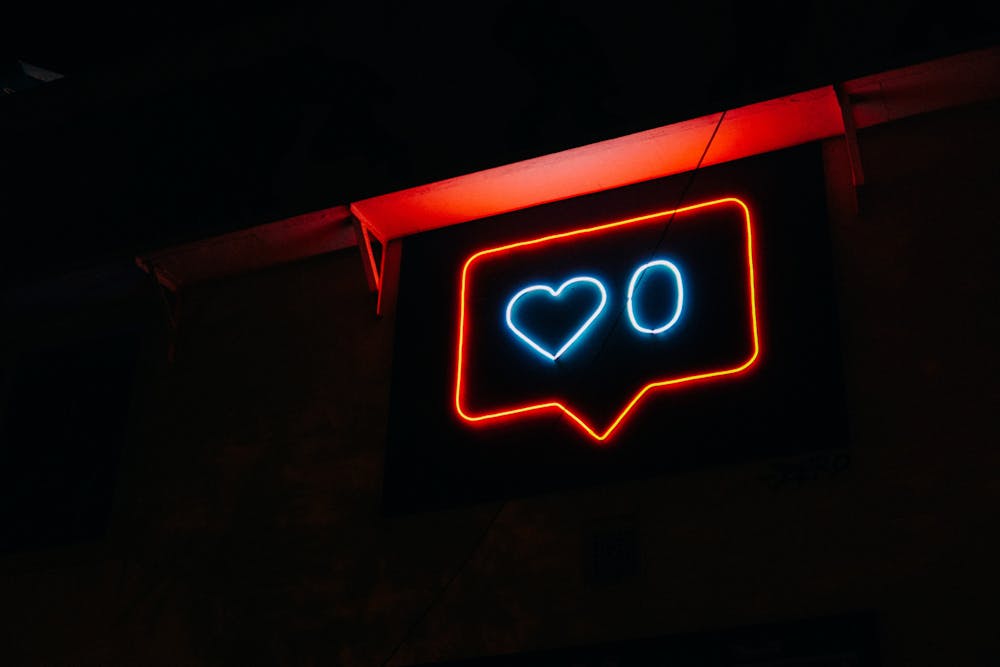In the last days of 2022, I traveled back home after a difficult finals season to a schedule full of absolutely nothing on my calendar for a few weeks. For perhaps the first time since starting college, I was completely free from academic and work obligations.
In the thick of the semester, I had often promised myself that when it was all over, I would enjoy my freedom — I would become the ideal version of myself, unshackled from work but still totally in my element.
I did write more, but for every hour I spent writing, I put in two hours of time online. I cycled through every app with a “follow” button for days that turned into weeks. The low-level anxiety I had once directed at deadlines and exams was redirected to my phone battery level and the buzz of notifications.
I can’t necessarily explain why I left finals season and ran straight into the arms of social media addiction, and I’m certainly not proud of it. At the end of that month, I had deleted every app for which I had a profile. The hours spent online had completely ruined my attention span and destroyed any semblance of self-control. I reached the point where I was sick of the scroll — and sick of myself. For those who have found themselves in a similar situation, I would argue that logging off might be the best option.
There were a few obvious pros to getting off social media; for one, I was enjoying lots of free time I hadn’t seen in years. The 15 minutes I had spent here or there on Instagram or Twitter had started to add up.
In those first few weeks, I felt like I had more control over my attention than I had in years. I was reading novels, playing cards and doing all the things that kept me happy instead of distracted. After turning away from my phone’s seductive blue light, I was sleeping better. Most importantly, I haven’t gone back.
That being said, if quitting social media were that simple, everyone would do it. During my period of social media saturation, I caught a glimpse into what keeps people online: the twin forces of habit and a fear of missing out.
The average American spends about four hours a day on mobile devices — with significant portions of that time being tied up in social, photo and video apps; during the pandemic, phone usage only increased. One might argue that the tendency towards screen usage is only an extension of the trend begun by television in the 20th century.
It’s becoming more and more difficult to maintain a separation between the “real world” and the internet. Journalists use tweets as primary sources and major newspapers publish stories about TikTok trends. The line between influence and interaction, between user and commodity, blurs with the rise of consumer-to-consumer marketing and paid posts. In my daily life, I have regularly heard TikTok audios referenced in conversation.
I say all of these things not to paint a picture of some dystopian post-social media world, but to note the subtle ways in which the internet has changed us. I’m aware of social media’s utility for its original purpose: sharing information and sharing one’s life. But 19 years after the launch of Facebook, “using social media” has a very different connotation than it once did.
To live in the 21st century is to be familiar with the overwhelmingly large influence of the internet. Still, it can be difficult to see why you should get offline. Some psychologists argue that you should do so for your mental health. Even a week of social media abstinence can lead to a significant increase in mental well-being. The question of how much screen time is too much is complicated, but researchers agree about the negative effect of social media specifically, compared to general phone usage.
The issue is further complicated by the social isolation that comes with getting offline. A study found that users who spent 30 minutes a day on social media were less depressed than their peers who spent zero minutes. The researchers concluded that the former category of participants was the least isolated.
Anecdotally, this rings true; two months after deleting Instagram from my phone, I know less about my peers’ opinions, see fewer news stories and generally feel more disconnected from the Hopkins campus. At the same time, I feel closer to my parents, take fewer pictures, write more words and spend more time outside. I don’t have nearly as much free time as I thought I might — I have filled my time with other things, primarily a passionate affair with music arrangement software.
If I had followed in the footsteps of the New York Luddites, a group of teenagers who have completely abandoned “smart” technology, I might have seen more drastic changes. The truth about this experience is that getting off social media only feels significant when you are on social media; as soon as I left, I found other things to worry about.
So should you delete your accounts? Go ahead. Next time you delete TikTok or Instagram for finals season, try keeping it off for a week, then a month. But be aware that whatever secondary addiction you are currently nursing may become your next big time sink, whether it is gaming, watching TV or partying. You may also feel more isolated; the social internet is still where much of the world lives, and that isn’t going to change anytime soon. But you can control whether it is where you live.
Catherine Pollard is a sophomore from Hudson, Mass. majoring in Mechanical Engineering and Philosophy.





